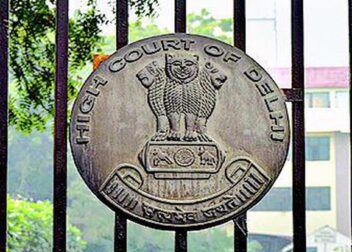Till the cutoff date of September 2021, the Bar Council of India had not fully allowed foreign lawyers and law firms to practice in India.
However, there have been discussions and proposals to liberalize the legal market in India to allow foreign lawyers and law firms to practice in India in a limited capacity. The Indian government has been considering opening up the legal services sector to foreign lawyers and law firms in order to promote foreign investment and improve the quality of legal services in the country.
In March 2020, the Bar Council of India issued a draft rule that would allow foreign lawyers to come to India on a “fly in, fly out” basis to advise their clients on international legal matters. However, the proposal was met with some opposition from lawyers in India who were concerned about the potential impact on Indian lawyers and the legal profession in India.
It is important to note that the legal market in India is highly regulated, and any decision to allow foreign lawyers and law firms to practice in India would likely be subject to strict regulations and limitations.
The Bar Council of India made a major announcement on March 10, 2023, with the release of the “Bar Council of India Rules For Registration and Regulation of Foreign Lawyers and Foreign Law Firms in India, 2022”. This development allows foreign lawyers and law firms to practice in India in areas such as foreign law, international legal issues, and arbitration matters. Interestingly, the BCI had previously opposed such entry, but this sudden reversal was made without consulting with the larger body of advocates across the country.
New Rules from The Bar Council of India (BCI) for Foreign Lawyers and Law Firms
The Bar Council of India (BCI) has announced new rules allowing foreign lawyers and law firms to practice non-litigious law in India on a reciprocity basis. This move, which had previously been opposed by the BCI, is expected to transform the legal landscape in India. The notification of the rules was released on Wednesday, although they were framed in 2021.
- To practice law in India, a foreign lawyer or foreign law firm must be registered with the BCI. However, there are exceptions to this prohibition, including providing legal advice on foreign law and diverse international legal issues on a “fly in and fly out basis,” being engaged by a client in a foreign country without maintaining an office in India for the purpose of practice, or practicing in India for a total of 60 days or less in any 12-month period.
- The primary qualification for practicing law in India is the right to practice law in the foreign country in question. Registration is valid for five years and requires renewal six months before expiration. Registered foreign lawyers can only practice non-litigious matters in India and cannot appear before any courts, tribunals, or statutory or regulatory authorities requiring the submission of sworn affidavits, except for arbitration tribunals.
- They can engage in transactional or corporate work on a reciprocal basis, including joint ventures, mergers and acquisitions, intellectual property matters, drafting contracts, and related matters. However, they cannot perform conveyancing or title investigation work.
- The registered foreign lawyer or law firm may open one or more law offices in India and must keep the Bar Council of India informed of the particulars of the office, including the postal address, name of the owner/lessee of the property in which the office is located, and documents allowing the foreign lawyer or law firm to occupy the office.
- They can engage the legal expertise of one or more Indian advocates registered as foreign lawyers or any advocate enrolled with any state Bar council in India on any subject relating to Indian laws. However, registered foreign lawyers or foreign law firms cannot appear before any Indian court, tribunal, or statutory forum.
- Additionally, foreign lawyers and law firms can enter into partnerships with one or more foreign lawyers or foreign law firms registered in India under these rules. BCI said that these rules would help address concerns about foreign direct investment flow in the country and make India a hub of international commercial arbitration.
BCI Registration fee in case of a foreign lawyer, Law firm, private limited partnership, company, Limited Liability Partnership
According to the new BCI Rules, foreign lawyers who wish to practice in India must pay a registration fee of USD 25,000, while law firms or LLPs are required to pay USD 50,000. Renewal fees for lawyers are set at USD 10,000, while law firms must pay USD 20,000. Additionally, applicants must provide an application fee along with a security deposit of USD 15,000 for individual lawyers and USD 40,000 for law firms.
Why Associations of Lawyers has opposed BCI decisions for foreign lawyers and law firms?
It is not accurate to say that all lawyers are against the Bar Council of India (BCI) allowing foreign lawyers to practice in India. However, there are some concerns that have been raised by lawyers and legal professionals regarding this decision.
One of the main concerns is that foreign lawyers may not be familiar with Indian laws and legal procedures, which could lead to issues in the cases they handle. Additionally, some lawyers fear that allowing foreign lawyers to practice in India could lead to a decrease in job opportunities for Indian lawyers.
Another concern is that foreign law firms may have more resources and be able to offer services at lower prices, which could negatively impact Indian law firms. Some lawyers argue that foreign law firms should not be allowed to practice in India until Indian law firms are allowed to practice in the foreign law firms’ home countries on an equal basis.
Overall, while there are differing opinions on the matter, the BCI’s decision to allow foreign lawyers to practice in India has sparked some debate and concern among the legal community.
Although the move has been welcomed by many lawyers as an opportunity for Indian firms to learn from global best practices and encourage healthy competition, concerns remain about the possibility of foreign firms indirectly practicing Indian laws. Stricter oversight will therefore be required.



